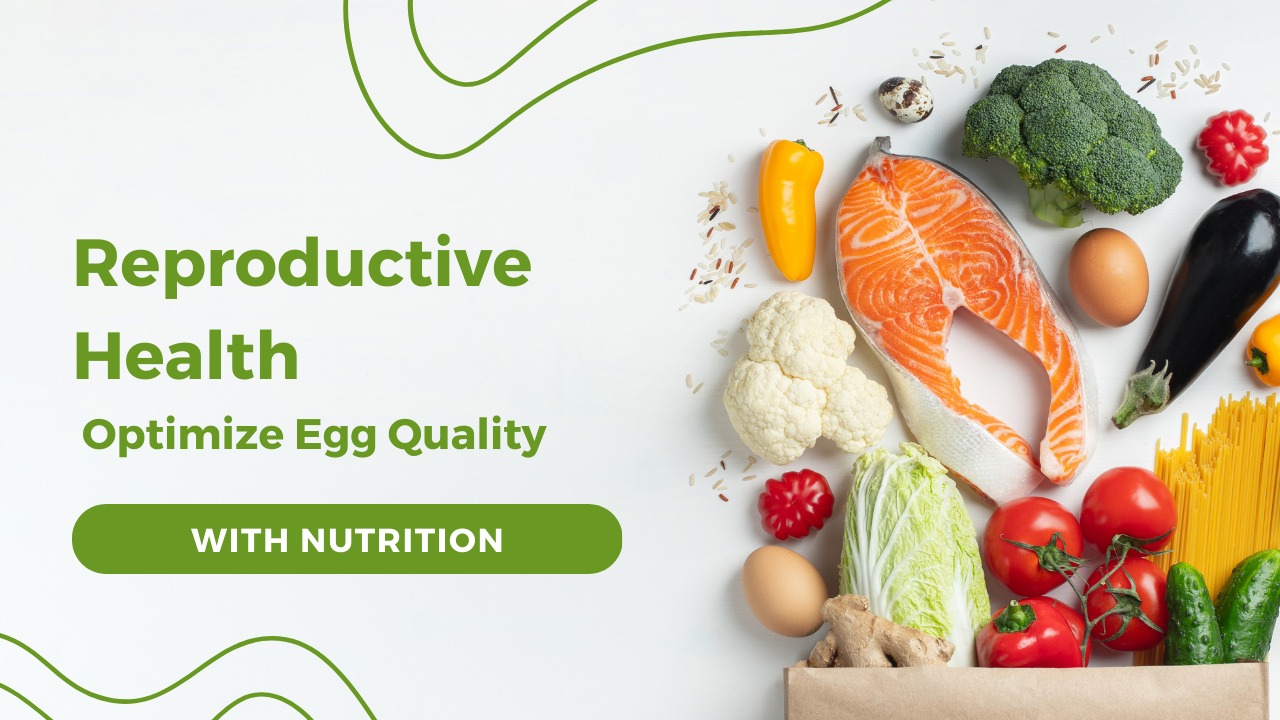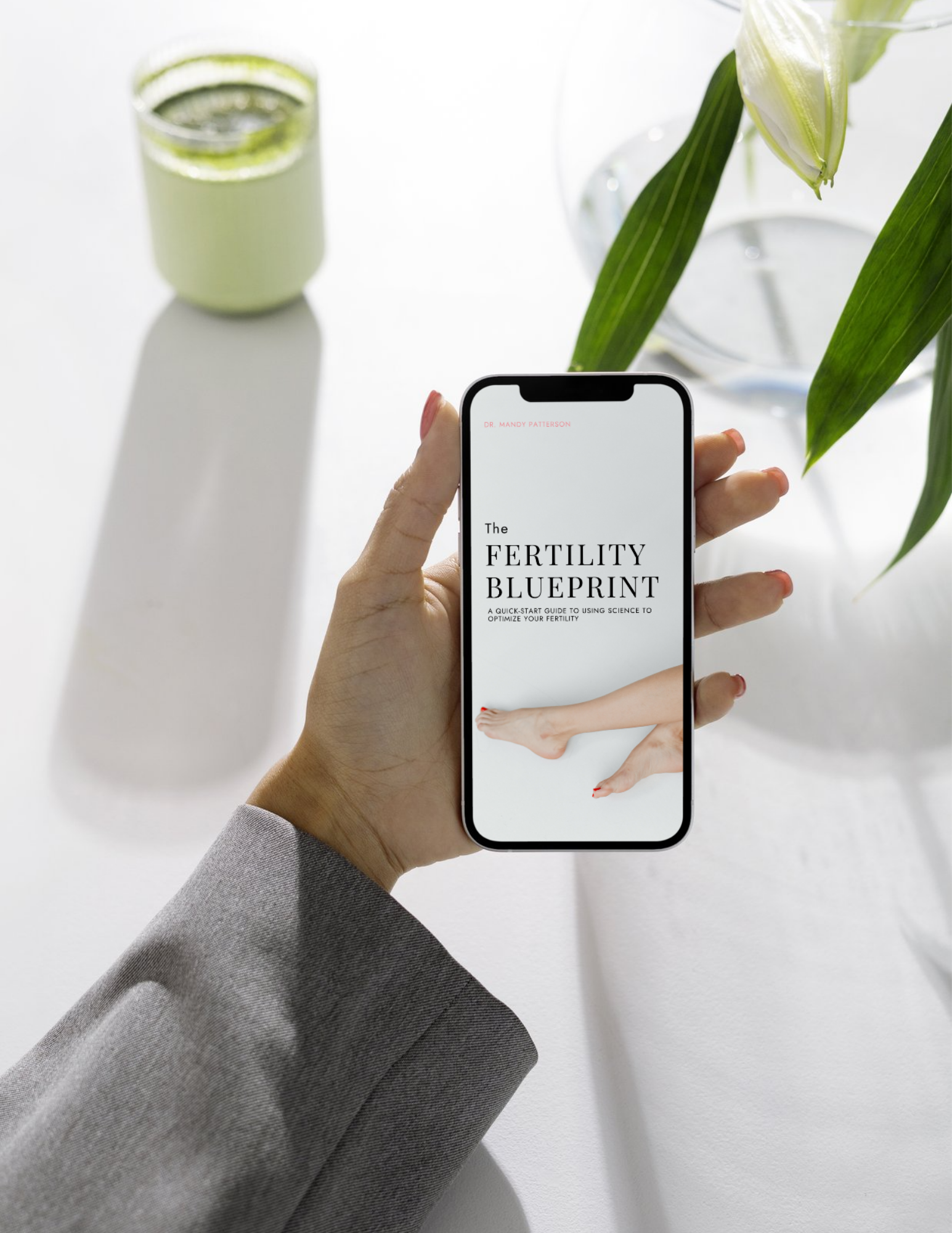Ladies, if you’re trying to get pregnant and looking for natural ways to support your fertility, there is no better place to start than by optimizing your eggs with nutrition. The fact of the matter is that what you eat directly affects your health, especially the health of your reproductive system. Focusing on egg quality during the preconception period is critical for all women who want to conceive.
In this article, you will learn how to enhance the quality of your eggs through targeted dietary supplements and nutrition.
Why is Egg Quality Important?
Let’s start with egg quantity. Women are born with all the eggs they will ever have. This number begins to decline at birth and increasingly so once you hit forty. Even women who aren’t ovulating (PCOS, taking oral birth control, etc.) will see a decline in overall egg quantity with time. In fact, approximately one thousand eggs are lost each month after puberty which happens progressively until menopause.
In addition to egg quantity, there is also a decline in egg quality as women age.
Egg quality refers to how capable an egg is of getting fertilized and becoming a viable embryo. If you have poor-quality eggs, you are more likely to have difficulty getting pregnant and may experience more pregnancy complications.
The quality of your eggs depends on several factors.
Both maternal age and chromosome count are factors that impact egg quality. As you age, there will be an increase in the number of aneuploid (abnormal) eggs. If you conceive with an aneuploid egg, the embryo will inherit too few or too many chromosomes. These embryos will either fail to implant in the uterus or result in a miscarriage.
Similarly, mitochondrial health, or the energy supply to the egg, impacts its quality. If you remember from 9th-grade biology, mitochondria are known as the “powerhouse” of the cell.
They produce enough energy to fuel the entire cell and its related functions. This energy source is especially critical for egg development. Moreover, proper mitochondrial function ensures that an egg has a normal chromosome count.
Research indicates that women over the age of 35 have fewer mitochondria. This research may explain why women have a more difficult time conceiving as they grow older.
While you can’t turn back time, science shows that it is possible to enhance egg quality through diet, lifestyle, and nutritional supplementation.
How to Determine Egg Quality?
Fertility testing can help determine egg quantity and ovarian reserve, which helps paint a picture of egg quality. I recommend testing levels of follicle-stimulating hormone (FSH) and anti-mullerian hormone (AMH).
Follicle-stimulating hormone is produced by the pituitary gland each month and stimulates the ovaries to develop eggs. Higher than normal levels of FSH means that the pituitary gland must work harder to produce more FSH because the ovaries have become resistant to normal amounts of FSH. This indicates a decrease in ovarian reserve or egg quantity.
However, some research indicates that women with elevated FSH still have a good chance of getting pregnant through IVF.
Likewise, Anti-mullerian hormone (AMH) is produced by early-stage or immature follicles, which are fluid-filled sacs containing an egg. Measuring this hormone can help estimate the number of follicles present in a woman’s ovaries, also known as the ovarian reserve.
How to Optimize Egg Quality with Nutrition?
Three months prior to ovulation, an egg cell (follicle) grows dramatically in size as it begins to mature. During this time, it requires nutrients and energy from the surrounding environment. By improving your diet and lifestyle approximately 90 days before ovulation, you can optimize egg quality and increase your chances of a healthy and successful pregnancy!
Supplements
Prenatal
A prenatal supplement allows you to get all the critical vitamins, minerals, and antioxidants that can boost reproductive health that you cannot always get from diet. Create a healthier foundation for fertility by adding a prenatal vitamin to your daily routine.
In addition, prenatal vitamins include nutrients that research has specifically shown support or improve your eggs, such as choline. They also contain higher doses of important nutrients such as folate, iron, and iodine which help a developing baby.
Omega 3 Fatty Acids
Omega-3 fatty acid supplements improve egg and embryo quality. They also have a positive effect on the embryo’s implantation in the uterus after conception.
Wild-caught fish, such as sardines and salmon, contain the highest concentrations of omega-3 fatty acids. You can also take a fish oil supplement high in omega-3 fatty acids.
Moreover, docosahexaenoic acid (DHA), one of the three components of fish oil, has been linked to fetal brain development and infant neurodevelopment.
CoQ10
Coenzyme Q10 (CoQ10) is a potent antioxidant naturally produced in the body. It is a critical nutrient that supports the mitochondria and helps generate cellular energy. Unfortunately, CoQ10 levels begin to decline in your 30s.
In fact, a 2015 study on female reproductive health found that suboptimal levels of CoQ10 were linked to decreased numbers of oocytes (or eggs) and poor egg quality.
Research also indicates that CoQ10 supplementation improved ovarian response and embryo quality in women with low ovarian reserve.
Diet
In addition to taking targeted supplements, you can make dietary changes to influence egg quality.
Research demonstrates improved fertility rates by following a diet centered around whole foods such as fruits, vegetables, legumes, whole grains, lean protein sources, and healthy fats such as full-fat organic dairy and olive oil.
More specifically, one of the healthiest diets to follow for improved fertility outcomes is the Mediterranean diet.
One study found that infertile women with greater adherence to the Mediterranean diet had higher numbers of fertilized oocytes (eggs) and embryo yield compared to the control group when undergoing IVF.
In addition to choosing foods that are packed with amino acids, antioxidants, and healthy fats, avoid sugar, alcohol, and fried or processed foods which can damage mitochondria, causing premature aging of your egg cells.
Work with a Fertility Coach
Fertility coaching is the perfect choice for you no matter where you are on your fertility journey. Whether you have been trying for years or are just beginning to consider pregnancy, this is a great time to cover essential topics for your fertility and well-being.
If you’re interested in learning more about fertility coaching, reach out to me. As a Doctor of Naturopathy, Certified Holistic Health Coach, and Fertility Coach, I’m dedicated to helping you achieve success on your fertility journey.
Not to mention, I’m a mom of six, so I’ve got plenty of experience to share! My goal is to help you feel prepared and nourish your physical, emotional, and mental well-being as you work to achieve a healthy pregnancy.


















